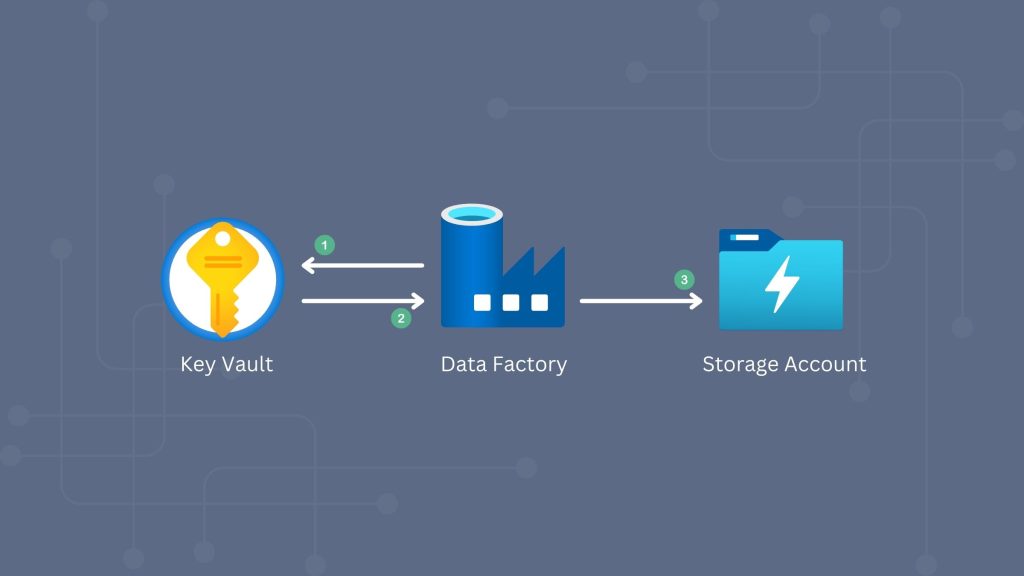Introduction
Securing passwords and tokens is more necessary than ever. If passwords are stolen or leaked, they can cause significant problems and financial losses. An Azure key vault (KV) is one way to keep passwords secure.
This post will look at how to keep passwords safe using a key vault alongside the Azure Data Factory.
What is a Key Vault?
It is a part of Azure Cloud that protects cryptographic keys and secrets, such as passwords, tokens and certificates. It helps enhance security by providing a centralized, secure environment to manage access to sensitive information.
Benefits of Using a KV
- Enhanced Security: Offer robust encryption algorithms to protect passwords and secrets.
- Access Control: You can set granular access policies, ensuring only authorized personnel and applications can access your passwords.
- Centralized Management: Managing passwords and keys from a single location simplifies the process and ensures consistency.
- Compliance: Many critical vault services comply with industry standards and regulations, helping you meet compliance requirements.
- Auditing and Monitoring: Provide detailed logs and monitoring capabilities to track password access and usage.
Scenario
In a typical Extract, Transform, Load (ETL) scenario, files are often processed from a data lakehouse.
To enable Azure Data Factory (ADF) to connect to Azure Data Lake Storage (ADLS), it is necessary to authenticate and grant permission for read and write operations. The credentials for ADLS will be stored in the key vault to prevent ADF from storing any sensitive information. See how the managed identity collaborates to enhance ADF security.

Demo
Coming soon.
Conclusion
The Data Factory pipelines can leverage the benefits of Key Vault to enhance its security. This approach can seamlessly integrate with CI/CD pipelines to ensure consistent and secure deployment processes.



